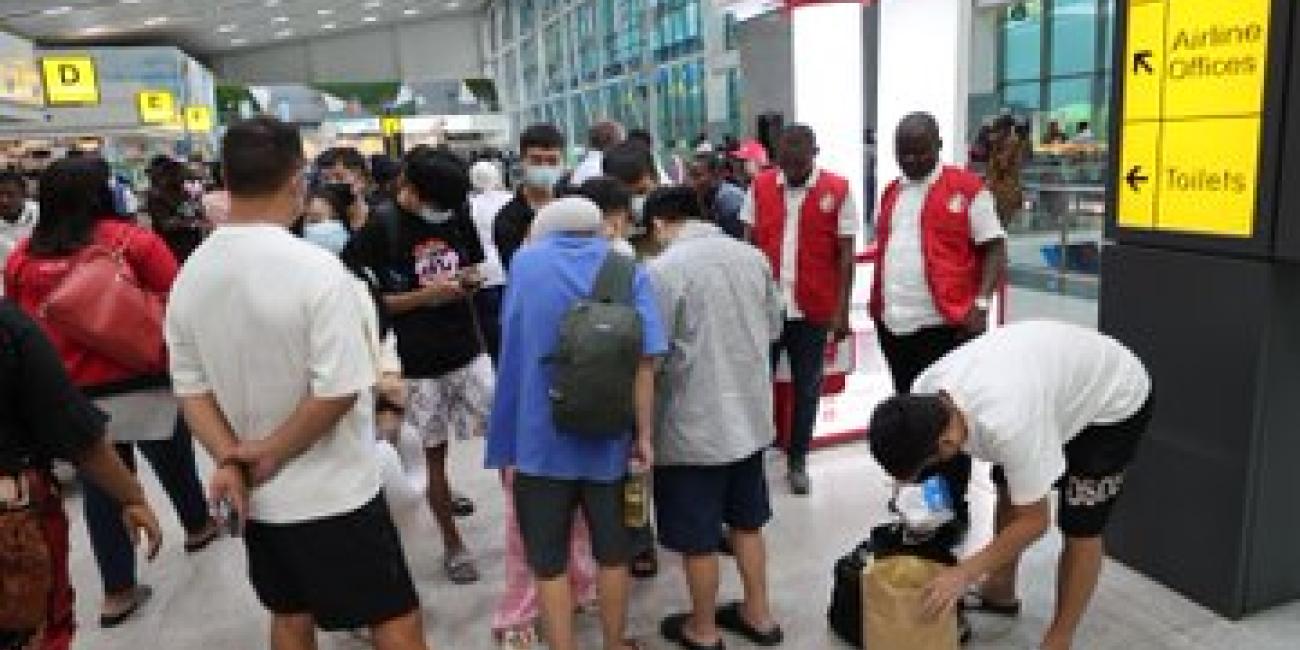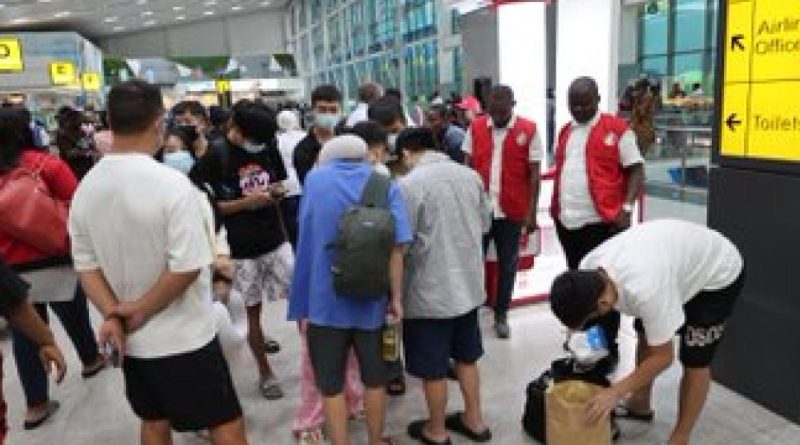Nigeria Deports 192 Chinese, Filipino, Other Foreign Nationals Convicted Of Cybercrime, Massive Ponzi Scheme

The Nigerian government, through the Economic and Financial Crimes Commission (EFCC), in collaboration with the Nigeria Immigration Service (NIS) and the Nigerian Correctional Service (NCoS), has completed the deportation of 192 foreign nationals convicted of cyberterrorism, internet fraud, and related financial crimes in Lagos.
According to a statement by the EFCC, the final batch of 51 convicts, comprising 50 Chinese nationals and one Tunisian, was deported on Wednesday, October 16, 2025.
The development marks the conclusion of a series of deportations that began in August 2025 following their conviction by the Federal High Court in Lagos.
The EFCC said the mass deportation followed the arrest and successful prosecution of 759 suspects during a major sting operation conducted on December 10, 2024, at Oyin Jolayemi Street, Victoria Island, Lagos.
The deportation exercise commenced on Friday, August 15, 2025, after the court sentenced the offenders for crimes bordering on cybercrime, money laundering, and Ponzi scheme operations.
The first batch of 42 convicts, mostly Chinese and Filipino nationals, was deported on August 15. Subsequent batches followed throughout August and September, culminating in the final removal of the remaining 51 convicts in mid-October.
In total, 192 convicts were repatriated to their home countries, including China, the Philippines, Tunisia, Malaysia, Pakistan, Kyrgyzstan, and Timor-Leste, in compliance with court orders and immigration procedures.
The EFCC said that all the deported convicts were arrested alongside their Nigerian accomplices, believed to be members of a sophisticated cybercrime and Ponzi scheme syndicate operating under the cover of Genting International Co. Limited.
The operation, which the Commission described as being based on “credible, actionable intelligence,” exposed an elaborate network engaged in large-scale online fraud, identity theft, and cyber-enabled Ponzi schemes.
Investigations, according to the anti-graft agency, showed that the foreign nationals played key roles in training Nigerian recruits and managing fraudulent digital platforms designed to defraud victims both locally and internationally.
Following their conviction, the Federal High Court directed that the convicts be deported after serving their sentences.
The Nigerian Immigration Service (NIS) carried out the deportations in coordination with the EFCC and NCoS to ensure full compliance with legal and diplomatic protocols.
The EFCC described the exercise as a major milestone in Nigeria’s fight against transnational cybercrime and reaffirmed its commitment to international cooperation in combating financial and digital fraud.
